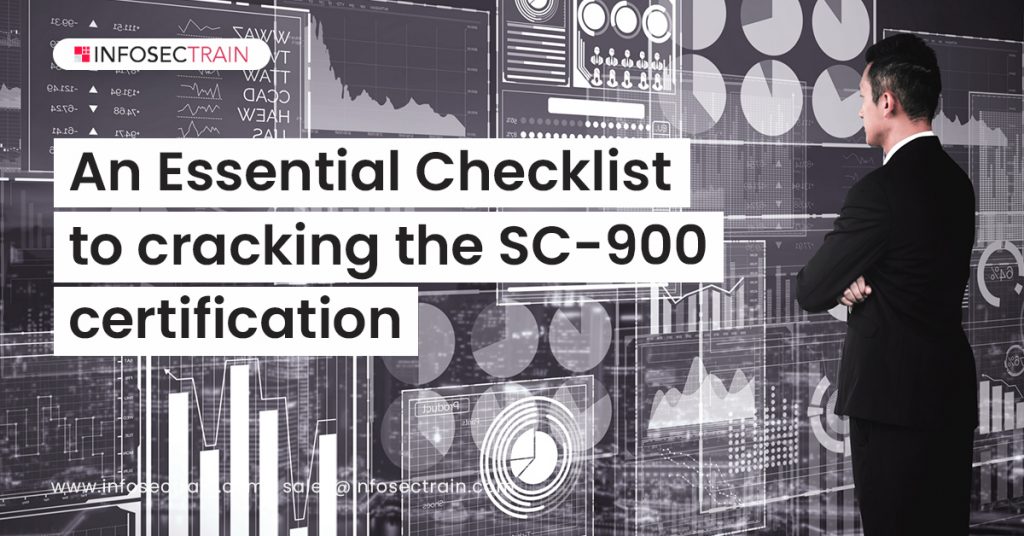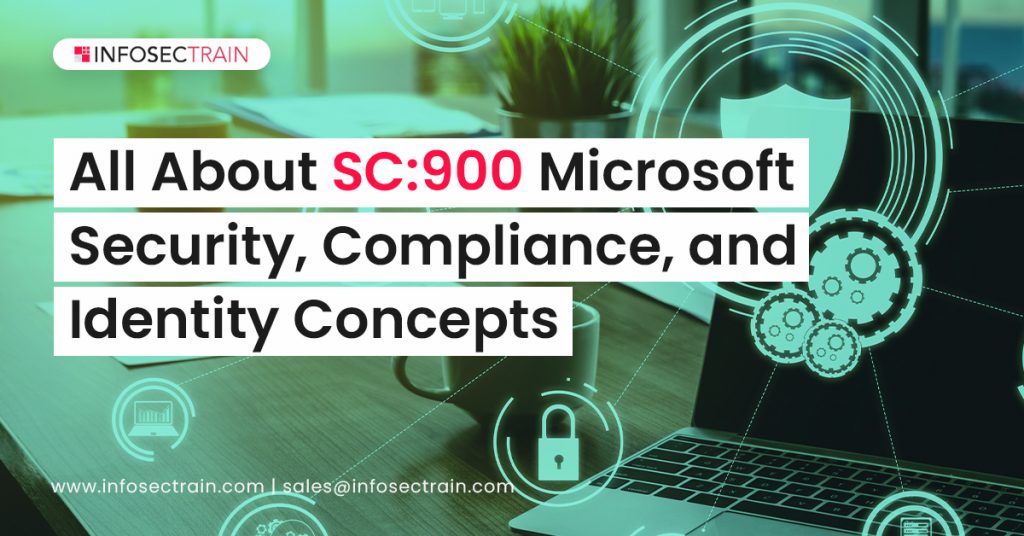Module 1: Introduction to AD DS
- Introduction
- Define AD DS
- Define users, groups, and computers
- Define AD DS forests and domains
- Define OUs
- Manage objects and their properties in AD DS
Module 2: Manage AD DS Domain Controllers and FSMO Roles
- Introduction
- Deploy AD DS domain controllers
- Maintain AD DS domain controllers
- Manage the AD DS Global Catalog role
- Manage AD DS operations masters
- Manage AD DS schema
Module 3: Implement Group Policy Objects
- Introduction
- Define GPOs
- Implement GPO scope and inheritance
- Define domain-based GPOs
- Create and configure a domain-based GPO
- Define GPO storage
- Define administrative templates
Module 4: Manage Ddvanced Features of AD DS
- Introduction
- Create trust relationships
- Implement ESAE forests
- Monitor and troubleshoot AD DS
- Create custom AD DS partitions
Module 5: Implement Hybrid Identity with Windows Server
- Introduction
- Select a Microsoft Entra integration model
- Plan for Microsoft Entra integration
- Prepare on-premises Active Directory for directory synchronization
- Install and configure directory synchronization with Microsoft Entra Connect
- Implement Seamless Single Sign-On
- Enable Microsoft Entra login in for Windows VM in Azure
- Knowledge check 1
- Describe Microsoft Entra Domain Services
- Implement and configure Microsoft Entra Domain Services
- Manage Windows Server 2019 in a Microsoft Entra Domain Services environment
- Create and configure a Microsoft Entra Domain Services instance
- Join a Windows Server VM to a managed domain
Module 6: Deploy and Manage Azure IaaS Active Directory Domain Controllers in Azure
- Introduction
- Select an option to implement directory and identity services using Active Directory Domain Services in Azure
- Deploy and configure Active Directory Domain Services domain controllers in Azure VMs
- Install a replica Active Directory domain controller in an Azure VM
- Install a new Active Directory forest on an Azure VNet
Module 6: Perform Windows Server Secure Administration
- Introduction
- Define least privilege administration
- Implement delegated privileges
- Use privileged access workstations
- Use jump servers
Module 7: Describe Windows Server Administration Tools
- Introduction
- Explore Windows Admin Center
- Use Server Manager
- List Remote Server Administration Tools
- Use Windows PowerShell
- Use Windows PowerShell to remotely administer a server
Module 7: Perform Post-Installation Configuration of Windows Server
- Introduction
- List the available post-installation configuration tools
- Configure Server Core using Sconfig
- Use DSC to configure Windows Server
- Perform post-installation configuration with Windows Admin Center
- Configure a server with answer files
Module 8: Just Enough Administration in Windows Server
- Introduction
- Explain the concept of Just Enough Administration (JEA)
- Define role capabilities for a JEA endpoint
- Create a session configuration file to register a JEA endpoint
- Describe how JEA endpoints work to limit access to a PowerShell session
- Create and connect to a JEA endpoint
- Demonstration: Connect to a JEA endpoint
Module 9: Administer and Manage Windows Server IaaS Virtual Machine Remotely
- Introduction
- Select the appropriate remote administration tool
- Manage Windows Virtual Machines with Azure Bastion
- Create an Azure Bastion host
- Configure just-in-time administration
Module 10: Manage Hybrid Workloads with Azure Arc
- Introduction
- Describe Azure Arc
- Onboard Windows Server instances
- Connect hybrid machines to Azure from the Azure portal
- Use Azure Arc to manage Windows Server instances
- Restrict access with RBAC
Module 11: Configure and Manage Hyper-V
- Introduction
- Define Hyper-V
- Define Hyper-V Manager
- Configure Hyper-V hosts using best practices
- Configure Hyper-V networking
- Assess advanced Hyper-V networking features
- Define nested virtualization
Module 12: Configure and Manage Hyper-V virtual Machines
- Introduction
- List the virtual machine configuration versions
- List the virtual machine generation versions
- List available VHD formats and types
- Create and configure VMs
- Determine storage options for VMs
- Define shared VHDs and VHD Sets
- Implement guest clusters using shared VHDX
Module 13: Secure Hyper-V Workloads
- Introduction
- Define guarded fabric
- Define the Host Guardian Service
- Explore TPM-trusted attestation
- Define KPS
- Determine key features of shielded VMs
- Compare encryption-supported and shielded VMs in a guarded fabric
- Implement a shielded VM
Module 14: Run Containers on Windows Server
- Introduction
- Define containers
- List the differences between containers and VMs
- Define Windows Server and Hyper-V containers and isolation modes
- Explore Docker
- Prepare a Windows Server 2019 host for container deployment
- Security, Storage, and Networking with Windows containers
Module 15: Orchestrate Containers on Windows Server Using Kubernetes
- Introduction
- Define orchestration
- Define Kubernetes
- Deploy Kubernetes resources
- Create a Kubernetes cluster on Windows
- Define Azure Arc
- Connect an Azure Arc-enabled Kubernetes cluster to Azure Arc
Module 16: Plan and Deploy Windows Server IaaS Virtual Machines
- Introduction
- Describe Azure compute
- Describe Virtual Machine storage
- Deploy Azure Virtual Machines
- Create a windows Virtual Machine using the portal
- Create a windows Virtual Machine using Azure CLI
- Deploy Azure Virtual Machines using templates
- Describe additional management optimization options
Module 17: Customize Windows Server IaaS Virtual Machine Images
- Introduction
- Create a generalized image
- Create a new Virtual Machine from a managed image
- Create a managed image of a generalized virtual machine in Azure
- Create a Virtual Machine from a managed image
- Implement Azure Image Builder
- Create a windows Virtual Machine using Azure Image Builder template
- Create a Windows Virtual Machine with Azure Image Builder using PowerShell
Module 18: Automate the Configuration of Windows Server IaaS Virtual Machines
- Introduction
- Describe Azure Automation
- Implement Azure Automation with DSC
- Remediate noncompliant servers
- Describe Custom Script Extensions
- Configure a Virtual Machine by using DSC
Module 19: Deploy and Manage DHCP
- Introduction
- Use DHCP to simplify IP configuration
- Install and configure the DHCP role
- Configure DHCP options
- Configure DHCP scopes
- Select DHCP high availability options
- Implement DHCP Failover
Module 20: Implement Windows Server DNS
- Introduction
- Explore the DNS architecture
- Work with DNS zones and records
- Install and configure the DNS role
- Implement DNS forwarding
Module 21: Implement IP Address Management
- Introduction
- Define IP Address Management
- Deploy IP Address Management
- Administer IP Address Management
- Configure IP Address Management options
- Manage DNS zones with IP Address Management
- Manage DHCP servers with IP Address Management
- Use IP Address Management to manage IP addressing
Module 22: Implement Remote Access
- Introduction
- Examine the remote access options in Windows Server
- Select and set up VPNs
- Use NPS to create and enforce network access policies
- Plan and implement NPS
- Deploy a PKI for remote access
- Use WAP as a reverse web proxy
Module 23: Implement Hybrid Network Infrastructure
- Introduction
- Describe Azure network topologies
- Implement Azure VPN options
- Create a route-based VPN gateway using the Azure portal
- Implement Azure ExpressRoute
- Configure Azure Virtual WAN
- Implement DNS in hybrid environments
Module 24: Implement DNS for Windows Server IaaS VMs
- Introduction
- Understand Azure DNS
- Implement Azure DNS
- Create an Azure DNS zone and record using the Azure portal
- Implement DNS with Azure IaaS virtual machines
- Implement split-horizon DNS in Azure
Module 25: Implement Windows Server IaaS VM IP Addressing and Routing
- Introduction
- Implement a virtual network
- Implement IaaS VM IP addressing
- Assign and manage IP addresses
- Configure a private IP address for a virtual machine using the Azure portal
- Create a virtual machine with a static public IP address using the Azure portal
- Implement IaaS virtual machine IP routing
- Implement IPv6 for Windows Server IaaS virtual machines
Module 26: Manage Windows Server file Servers
- Introduction
- Define the Windows Server file system
- List the benefits and uses of File Server Resource Manager
- Define SMB and its security considerations
- Configure SMB protocol
- Define Volume Shadow Copy Service
Module 27: Implement Storage Spaces and Storage Spaces Direct
- Introduction
- Define the Storage Spaces architecture and its components
- List the functionalities, benefits, and use cases of Storage Spaces
- Implement Storage Spaces
- List the functionalities, components, benefits, and use cases of Storage Spaces Direct
- Implement Storage Spaces Direct
Module 28: Implement Windows Server Data Deduplication
- Introduction
- Define the architecture, components, and functionality of Data Deduplication
- Define the use cases and interoperability of Data Deduplication
- Implement Data Deduplication
- Manage and maintain Data Deduplication
Module 29: Implement Windows Server iSCSI
- Introduction
- List the functionalities, components, and use cases of iSCSI
- List the considerations for implementing iSCSI
- Implement iSCSI
- Configure high availability for iSCSI
Module 30: Implement Windows Server Storage Replica
- Introduction
- List the functionalities and components of Storage Replica
- Examine the prerequisites for implementing Storage Replica
- Implement Storage Replica by using Windows Admin Center
- Implement Storage Replica by using Windows PowerShell
Module 31: Implement a Hybrid File Server Infrastructure
- Introduction
- Describe Azure File services
- Configure Azure Files
- Configure connectivity to Azure Files
- Describe Azure File Sync
- Implement Azure File Sync
- Deploy Azure File Sync
- Deploy Azure File Sync 2
- Manage cloud tiering
- Migrate from DFSR to Azure File Sync
 Read Reviews
Read Reviews





 5th Sep: Weekend
5th Sep: Weekend 





 Thoroughly enjoyed the course and the continuous support from the entire team..
Thoroughly enjoyed the course and the continuous support from the entire team..





 Certified & Experienced Instructors
Certified & Experienced Instructors Post Training Support
Post Training Support Customized Training
Customized Training Flexible Schedule
Flexible Schedule Access to Recorded Sessions
Access to Recorded Sessions 



 1800-843-7890 (India)
1800-843-7890 (India)